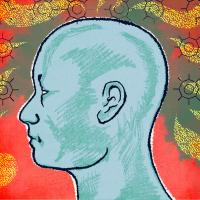For hundreds of years, both age-old philosophers and contemporary scientists have pointed to the intriguing possibility that free will is an illusion. While generally, most humans believe they have relative control over their decisions, researchers like Benjamin Libet have challenged that notion.
The idea that humans might not have complete autonomy over their lives brings into question what extent we do have control over. If free will is an illusion and our control is actually limited, then things like criminal law and social status may be drawn into question.
But are these conclusions well founded? To advance our collective understanding of free will, Dr. Uri Maoz is leading a collaborative research project that’s bringing together neuroscientists and philosophers from around the world.
An Exploration of Free Will
What is free will, really? The definition of free will is: “the power or capacity to choose among alternatives or to act in certain situations independently of natural, social, or divine restraints.” In other words, to have free will is to have indefinite control over one’s self and one’s decisions. Free will allows us to choose between right and wrong, as well as a myriad of mundane choices every day: bus or bike, soup or salad, etc.
The concept of free will comes with an assumption of responsibility for one’s decisions, both good and bad. This assumption falls in strict alignment with America’s idealism, politics, and social structure: Americans have control over their choices and thus, have control over their outcomes.
For those who believe free will is an illusion though, things like criminal law, welfare provision, and social status might be outside of our control. Their stance poses the question: if we don’t have absolute control, can we be judged absolutely for our circumstances?
Maoz, a computational neuroscientist at Chapman University, explains, “Free will is at the basis of a lot of our social pillars. Our legal system presumes some kind of freedom. There are economic theories that assume that people are free to make their decisions. For all those things, understanding how free we are, the limits of our freedom, how easy it is to manipulate our freedom, and so on, I think is important.”
Maoz’s research challenges the controversial assumptions about free will that have stemmed from the likes of Libet and Sam Harris, a well-known author and podcast host who has stated, “Free will is an illusion. Our wills are simply not of our own making.” The basis for Harris’ bold conclusion relies heavily on experiments conducted in the 1980s.
In these experiments, participants were asked to perform simple tasks such as pressing a button or flexing their wrist. While sitting in front of a timer, with EEG electrodes monitoring brain activity attached to their heads, the participants were told to note the moment they became aware of their decision to move.
What the experimenters found was that EEG signals were identified an average of a half second before participants noted their awareness of their decision to move. This gap between brain signal and human awareness became known as “readiness potential.” The researchers believed it helped prove that decisions are first made in the brain before a person becomes aware of their decision.
Do We Have Free Will?
Over the years, several major flaws were identified in these experiments that sparked debate in the world of science. Maoz’s work also calls its shaky conclusions into question. Having undertaken a number of experiments to quantify and test for free will, Maoz is one of our time’s top thought leaders on volition and decision making.
“I wouldn’t say that there is compelling evidence right now that we don’t have free will,” Maoz stated, “we actually have evidence that there are a lot of problems with this Libet experiment… Even if you could really predict these very arbitrary decisions of which hand you raise, it doesn’t seem to generalize to important life decisions.”
Those who disagree with the experiment’s findings typically do so for a few reasons. The experiments Libet performed, which he claimed indicated a lack of free will, might not have proven much at all. The very premises on which he ran these experiments seem to be misguided.
Libet believed that the delay between the EEG signals and the participants’ awareness of their decision to move, or the “readiness potential,” showed that decisions were being made prior to a person being aware of what they would do. The findings, however, might point to something much simpler and less scientific.
One issue surrounding the legitimacy of the experiment is that a certain amount of human error seems to be inherent within its parameters. Participants were, after all, asked to note the precise moment at which they were aware of their decision to perform a task. It’s debatable that humans are even capable of accurately recording this with advanced precision.
Additionally, it’s questionable whether Libet could have proven with any certainty that the EEG signals being read in participants were in fact linked to their decision to move or the movement itself. It could just have easily been picking up on other stimuli, such as an expectation to move. Could the tools used in this experiment really read the exact moment at which participants made the decision to perform a task with any precise accuracy? Likely not.
In 2010, Dr. Aaron Schurger and his colleagues proposed that Libet’s findings did nothing to prove free will is an illusion. Rather, they showed that the human brain, when faced with an arbitrary task, sometimes simply tips the scales toward one nebulous decision over another, saving us from ceaselessly pondering between decisions of no real consequence.
This doesn’t necessarily indicate that humans lack total control over the decision-making process. Instead, perhaps it demonstrates that humans are biologically wired to conserve time and energy by not lingering over unimportant decisions.
While Dr. Libet’s experiments might not have made any true progress toward answering age-old questions of free will, they have helped fuel important discussions. The ramifications of what it would mean to lack free will might be what is most at stake within the debate, and it’s also a crux of Maoz’s research.
Even though the existence or non-existence of free will remains indeterminable, some of the world’s brightest minds are coming together to seek answers. In the meantime it’s safe to assume that, while we might not be consciously processing each and every menial decision we make, the bigger decisions with larger implications are ones which we can control.
For more interesting news about the people and ideas that are changing our world, subscribe to Freethink.


